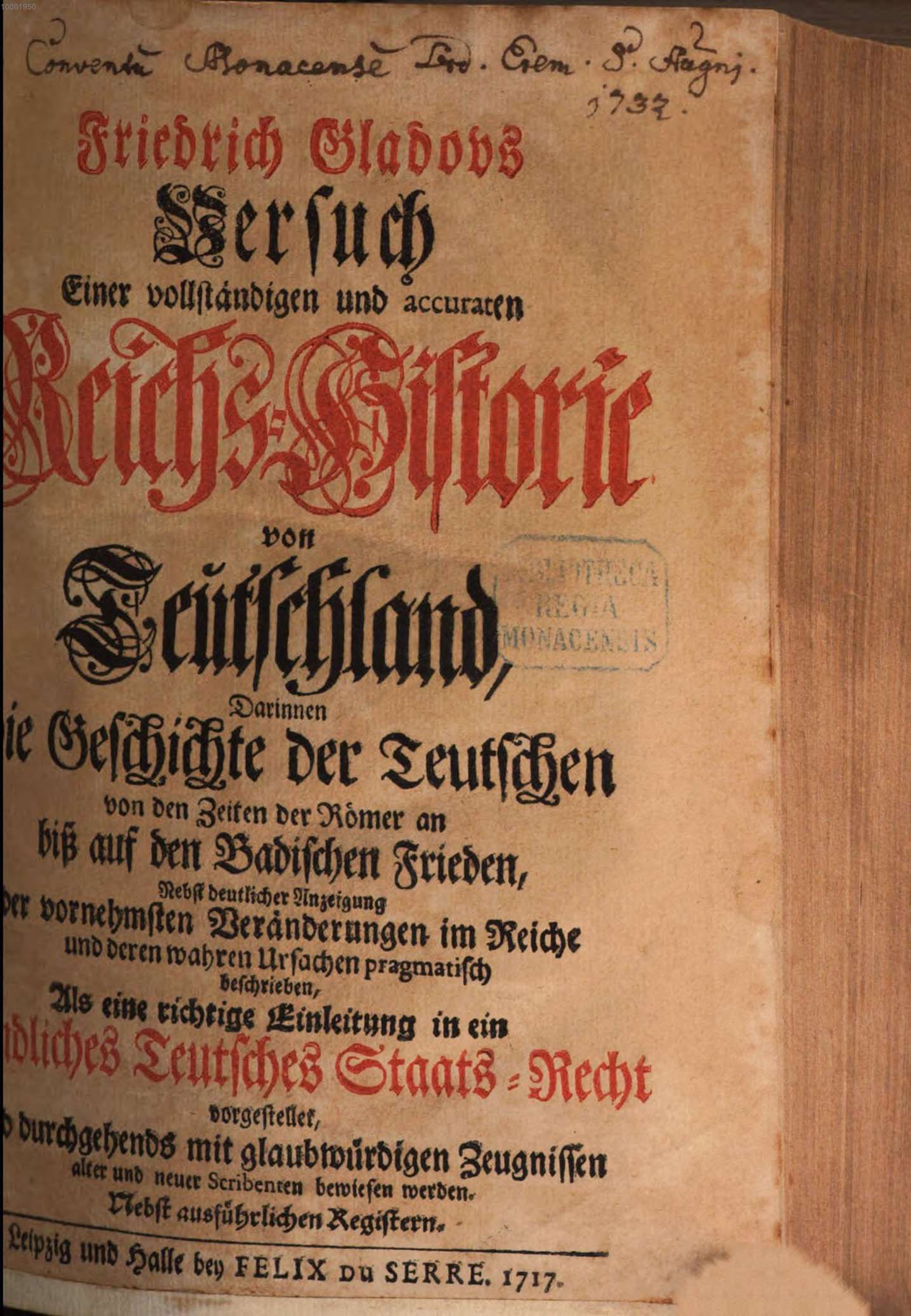Historicizing
Project manager: Prof. Dr. Daniel Fulda
To historicize, that is, to see all existence as "having-become" is seen, since Troeltsch, Koselleck, and Foucault as a fundamental thought pattern of cultural modernity, which took its essential shape in the eighteenth century. The practice of historicizing establishes continuities and in this ways reacts to a specifically modern experience of contingency.
Project Description
1. Historicizing is considered as a process through which "historical thinking" conquered more and more areas of culture and society over the course of the European/Western modern period. Yet, the concomitant assumption must be challenged, that is, the idea that historicization is normally accompanied by an increasing loss of validity of universal reason, of an immutable nature, of religious postulates of transcendence, of the tradition, or of other standards which have at that point not yet been historicized, or are assumed to be in principle not historicize-able. The field of research must be extended to the central question of the paradoxical interaction between historicizing and its "adversaries" - whether they continue to be or have in fact already been integrated.
2. The scholarship's focus on the perception of history of the philosophers and poets and on the major authors of the history of historiography is equally unsatisfactory. The interdisciplinary research planned in the field "historicization" aims to address even-handedly the different practices of historicization in order to define more precisely their enormous scope.
3. The previous scholarship is limited due to a broad segmentation of its research according to language. We intend to connect the research on German-speaking Middle Europe with the research on France and Great Britain, and, if possible, to include areas which have been less studied, such as Italy and Russia. The particular focus is on the "long eighteenth century", which is considered as the defining phase of historicization, although the previous and following centuries of the modern period will occasionally be included, so the qualitative as well as quantitative scope of the impetus for historicization in the "saddle period" can be properly assessed.
Recent presentations on the theme
- Latenzen der Geschichte (modern verstanden) und die Katachresen ihrer Darstellung. Einige Beobachtungen anhand von Chodowieckis Menschheitsgeschichte in zwölf Kalenderbildern. Presentation at the conference „Katachresen der Latenz. Rhetorik – Ästhetik – Geschichte“, September 2nd 2021, University Basel, eikones – Center for the Theory and History of the Image
- Gegenwärtigkeit als Ideal – Gegenwart als Ziel. Raum und Zeit in historiographischen Programmtex-ten und -bildern der Aufklärung. Presentation at the online-conference of the GRK 2291: Gegenwart/Literatur „Transformation, Referenz, Präsenz. Zum Wandel des Gegenwartskonzepts zwischen 1750 und 1800“, Februar 18th 2021
- Philosophy of History: How Religious Is It? Transcendence and Immanence in Herder and Bossuet, Presentation at the conference Universal Histories, March 3rd, 2020, Oxford University
- Wie anachronistisch darf bzw. muss Geschichtsdarstellung heute sein? Presentation at the conference Geschichtsdenken heute? Inszenierte Geschichte – historische Differenz – kritisches Bewusstsein, February 7th, 2020, Universität Bremen
- Verlockung und Unvermeidlichkeit des Anachronismus. Grenzen des Historisierens in der Gegenwartsliteratur [mit Stoffen aus dem 18. Jh.], Presentation at the conference „Historisieren", december 6th, 2019, Zentrum für Literatur- und Kulturforschung, Berlin
- Geschichtszeit und ästhetische Eigenzeit im historischen Roman, november 16th, 2018, Universität Leipzig
New Publications
- „Winkelmanns Historismus“. Zu einer Formel Friedrich Schlegels und ihrer (Nicht-)Rezeption in Deutschland und Italien, zugleich ein Plädoyer für einen komplexeren Historismusbegriff. In: Elisabeth Décultot [a.o.] (eds.): Die Winckelmann-Rezeption in Italien und Deutschland. Zirkulation, Adaption, Transformation. Berlin, Boston 2021, pp. 207–225.
- Time Travel as Running Around in Circles. The Popular Historical Novel and the Sense of Historicity in Today’s Society. In: Stefan Berger, Nicola Brauch and Chris Lorenz (eds.): Analysing Historical Narratives. On Academic, Popular and Educational Framings of the Past. New York, Oxford 2021, pp. 240–256.
- Weltverbesserung, Gefahrenbewältigung oder existentielle Steigerung? Säkulare und religiöse Zukunftserwartungen in der Formierungsphase der Moderne. In: Matthias Pohlig and Detlef Pollack (eds.): Die Verwandlung des Heiligen: Die Geburt der Moderne aus dem Geist der Religion. Berlin 2020, pp. 57–95.
- Liebe geht durch alle Zeiten? Historische und poetologisch-selbstreflexive Anachronismen im romanhaften Geschichtserzählen von Sexualität und Geschlechterrollen. In: Daniel Fulda und Stefan Jäger (eds.), in cooperation with Elena Agazzi: Romanhaftes Erzählen von Geschichte. Vergegenwärtigte Vergangenheiten im beginnenden 21. Jahrhundert. Berlin/Boston 2019, pp. 81-110.
- Elisabeth Décultot, Daniel Fulda and Christian Helmreich (eds.): Poetik und Politik des Geschichtsdiskurses. Deutschland und Frankreich im langen 19. Jahrhundert / Póetique et politique du discours historique en Allemagne et en France (1789-1914). Heidelberg 2018 (Germanisch-Romanische Forschungen. Beiheft 78).
- Sattelzeit(en). Zäsuren am Anfang (und am Ende)? der Moderne. In: INDES Zeitschrift für Politik und Gesellschaft 2018, H. 1, pp. 16-22.


